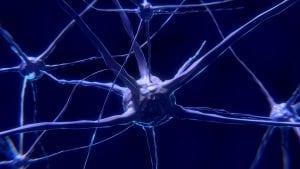Hypokalemic Periodic Paralysis (HOKPP)
What is hypokalemic periodic paralysis (HOKPP)?
Hypokalemic periodic paralysis (HOKPP) is a rare congenital disorder characterized by episodes of muscle paralysis associated with hypokalemia (a fall in blood potassium levels). These episodes generally involve a temporary inability to move muscles in the arms and legs, with the first attack occurring in childhood or adolescence. The length and frequency of these attacks varies among people who have HOKPP.What causes hypokalemic periodic paralysis (HOKPP)?
HOKPP can be caused by mutations in the CACNA1S, SCN4A, or KCNJ18 gene, though some other genes are still yet to be identified. All of these genes give the body instructions to make ion channels that are primarily expressed in skeletal muscle cells. The mutations in these genes are inherited in an autosomal dominant manner, but it is also possible for a spontaneous gene mutation to occur in a person without any family history of HOKPP. The following factors are also known to trigger an attack of HOKPP:- Rest after exercise
- Viral illness
- Certain medications
- Large, carbohydrate-rich meal
- Vigorous exercise followed by rest
What are the symptoms of hypokalemic periodic paralysis (HOKPP)?
Attacks result in muscle weakness or loss of muscle movement (paralysis). These attacks:- Most commonly occur at the shoulders and hips
- Occur off and on, but most commonly after sleep or rest
- Usually last 3-24 hours
How is hypokalemic periodic paralysis (HOKPP) diagnosed?
A diagnosis of HOKPP is based on the following factors:- A history of episodes of paralysis
- Low levels of potassium during, but not between, attacks
- Identification of typical “triggers” (such as rest after exercise or prolonged immobility)
- Family history
What are the available treatments for hypokalemic periodic paralysis (HOKPP)?
Treatment for HOKPP varies depending on the intensity and duration of the attacks because minor attacks may actually go away on their own. For more moderate or severe attacks, treatment options include the following:- Potassium salts
- Intravenous (IV) potassium
- Avoiding alcohol and eating a low-carbohydrate diet
- Medications, most commonly acetazolamide
Where can I find more information on hypokalemic periodic paralysis (HOKPP)?
Hypokalemic Periodic Paralysis (HOKPP) Articles

Scientists Have Discovered a Mechanism Behind Hypokalemic Periodic Paralysis
James Moore
July 9, 2018
Read More »




